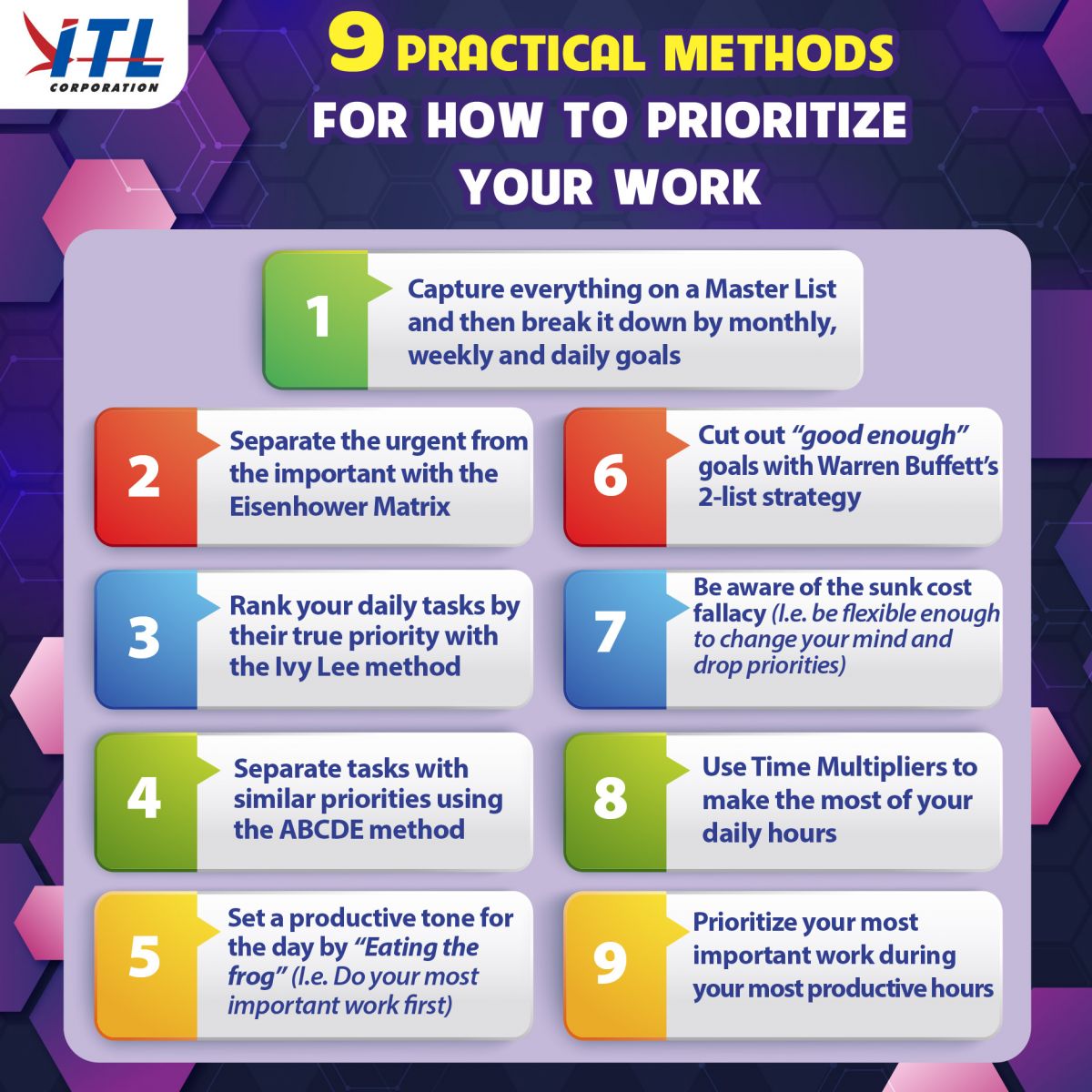Why Effective Time Management is Crucial for Business Success
Effective time management is the backbone of any successful entrepreneurial venture. Without a well-structured schedule, entrepreneurs can quickly find themselves overwhelmed, stressed, and struggling to keep up with the demands of their business. Poor time management can lead to decreased productivity, missed opportunities, and a significant impact on the bottom line.
In today’s fast-paced business environment, entrepreneurs need to be able to prioritize tasks, manage distractions, and make the most of their time. Successful entrepreneurial time management requires a combination of skills, including the ability to set clear goals, prioritize tasks, and avoid procrastination. By implementing effective time management strategies, entrepreneurs can increase their productivity, reduce stress, and achieve a better work-life balance.
One of the main consequences of poor time management is decreased productivity. When entrepreneurs are not able to manage their time effectively, they can find themselves wasting hours on non-essential tasks, such as checking social media or email. This can lead to a significant decrease in productivity, as well as a negative impact on the business’s overall performance.
In addition to decreased productivity, poor time management can also lead to increased stress. When entrepreneurs are overwhelmed with tasks and deadlines, they can quickly become stressed and anxious. This can lead to a range of negative consequences, including burnout, decreased motivation, and a negative impact on overall well-being.
Furthermore, poor time management can also lead to missed opportunities. When entrepreneurs are not able to manage their time effectively, they can miss out on important meetings, deadlines, and opportunities. This can lead to a significant impact on the business’s overall success, as well as a negative impact on the entrepreneur’s reputation.
In order to achieve successful entrepreneurial time management, entrepreneurs need to be able to prioritize tasks, manage distractions, and make the most of their time. This requires a combination of skills, including the ability to set clear goals, prioritize tasks, and avoid procrastination. By implementing effective time management strategies, entrepreneurs can increase their productivity, reduce stress, and achieve a better work-life balance.
How to Prioritize Tasks Like a Pro
Prioritizing tasks is a crucial aspect of successful entrepreneurial time management. By focusing on the most important tasks first, entrepreneurs can maximize their productivity, reduce stress, and achieve their goals. One effective way to prioritize tasks is to use the Eisenhower Matrix, a decision-making tool that helps entrepreneurs categorize tasks into four quadrants: urgent and important, important but not urgent, urgent but not important, and not urgent or important.
Another popular technique for prioritizing tasks is the Pomodoro Technique, which involves working in focused 25-minute increments, followed by a five-minute break. This technique can help entrepreneurs stay focused, avoid distractions, and maintain a sustainable work pace. Additionally, using to-do lists and calendars can help entrepreneurs prioritize tasks, set deadlines, and track progress.
When prioritizing tasks, entrepreneurs should consider the following factors: the task’s level of importance, its urgency, and its potential impact on the business. By evaluating these factors, entrepreneurs can determine which tasks to prioritize, and which tasks can be delegated or postponed. It’s also essential to avoid multitasking, as it can decrease productivity and increase stress.
Effective prioritization also involves learning to say no to non-essential tasks, and avoiding procrastination. By focusing on high-priority tasks, entrepreneurs can make significant progress, achieve their goals, and maintain a healthy work-life balance. Moreover, prioritizing tasks can help entrepreneurs identify and eliminate time-wasting activities, such as checking social media or email excessively.
Successful entrepreneurial time management requires a combination of skills, including prioritization, delegation, and time tracking. By mastering these skills, entrepreneurs can optimize their productivity, reduce stress, and achieve their goals. By prioritizing tasks effectively, entrepreneurs can create a schedule that works for them, and achieve a better work-life balance.
In addition to the Eisenhower Matrix and the Pomodoro Technique, there are many other tools and techniques that can help entrepreneurs prioritize tasks, such as the Getting Things Done (GTD) method, the Franklin Covey method, and the Priority Matrix. By experimenting with different techniques, entrepreneurs can find what works best for them, and develop a prioritization system that supports their unique needs and goals.
Time Management Tools for Entrepreneurs: A Review of Top Options
Effective time management is crucial for successful entrepreneurial ventures, and utilizing the right tools can make a significant difference. With numerous time management tools available, it can be challenging to determine which ones are the most effective. In this article, we will review some of the top time management tools for entrepreneurs, including Trello, Asana, and RescueTime.
Trello is a popular project management tool that uses a Kanban-style board to organize tasks and projects. Its intuitive interface and customizable boards make it an excellent choice for entrepreneurs who need to manage multiple projects simultaneously. Trello also offers a range of integrations with other tools, such as Google Drive and Slack, making it easy to incorporate into existing workflows.
Asana is another highly-regarded time management tool that helps entrepreneurs track and manage tasks, projects, and workflows. Its user-friendly interface and robust features, such as task assignment and deadline tracking, make it an excellent choice for teams and solo entrepreneurs alike. Asana also offers a range of integrations with other tools, such as Google Calendar and GitHub.
RescueTime is a time management tool that provides detailed insights into how entrepreneurs spend their time. By tracking time spent on tasks, apps, and websites, RescueTime helps entrepreneurs identify areas for improvement and optimize their workflows. Its automated time tracking feature and customizable alerts make it an excellent choice for entrepreneurs who want to stay focused and productive.
Other notable time management tools for entrepreneurs include Todoist, Evernote, and Calendly. Todoist is a task management tool that offers a range of features, such as task prioritization and deadline tracking, to help entrepreneurs stay organized and focused. Evernote is a note-taking tool that offers a range of features, such as note organization and tagging, to help entrepreneurs capture and organize their ideas. Calendly is a scheduling tool that helps entrepreneurs manage their time and schedule meetings with ease.
When selecting a time management tool, entrepreneurs should consider their unique needs and goals. It’s essential to choose a tool that is intuitive, customizable, and integrates with existing workflows. By utilizing the right time management tool, entrepreneurs can optimize their productivity, reduce stress, and achieve their goals.
In addition to using time management tools, entrepreneurs should also develop effective time management habits, such as prioritizing tasks, avoiding multitasking, and minimizing distractions. By combining the right tools with effective habits, entrepreneurs can achieve successful entrepreneurial time management and drive their businesses forward.
Creating a Schedule That Works for You
Creating a schedule that works for you is a crucial aspect of successful entrepreneurial time management. A well-crafted schedule can help you prioritize tasks, manage your time effectively, and achieve your goals. However, creating a schedule that works for you requires careful consideration of your unique needs, goals, and work style.
To create a schedule that works for you, start by identifying your most productive hours of the day. Are you a morning person or a night owl? When are you most focused and energized? Schedule your most important tasks during these hours to maximize your productivity.
Next, consider your goals and priorities. What are your short-term and long-term goals? What tasks need to be completed to achieve these goals? Schedule tasks that align with your goals and priorities, and allocate sufficient time for each task.
It’s also essential to leave space for flexibility in your schedule. Unexpected tasks and interruptions can arise, and having some buffer time can help you adapt to changes. Additionally, scheduling breaks and time for self-care can help you avoid burnout and maintain your physical and mental well-being.
Another critical aspect of creating a schedule that works for you is avoiding overcommitting. Don’t overload yourself with too many tasks or responsibilities. Learn to say no to non-essential tasks and delegate tasks when possible. This will help you maintain a healthy work-life balance and reduce stress.
Finally, review and adjust your schedule regularly. As your business and priorities evolve, your schedule may need to change. Regularly reviewing your schedule can help you identify areas for improvement and make adjustments as needed.
Some popular scheduling tools that can help you create a schedule that works for you include Google Calendar, Microsoft Outlook, and Trello. These tools offer features such as calendar sharing, reminders, and task assignment, which can help you stay organized and on track.
By creating a schedule that works for you, you can optimize your productivity, reduce stress, and achieve your goals. Remember to prioritize your tasks, leave space for flexibility, avoid overcommitting, and review and adjust your schedule regularly. With a well-crafted schedule, you can master the art of successful entrepreneurial time management and drive your business forward.
Managing Distractions and Minimizing Procrastination
Distractions and procrastination are two of the most significant obstacles to successful entrepreneurial time management. With the constant availability of social media, email, and other digital distractions, it’s easy to get sidetracked and lose focus. Additionally, procrastination can be a major productivity killer, causing entrepreneurs to put off important tasks and miss deadlines.
One of the most effective ways to manage distractions is to use website blockers. Tools like Freedom, SelfControl, and StayFocusd can block social media, email, and other distracting websites during certain periods of the day or for a set amount of time. This can help entrepreneurs stay focused on their tasks and avoid mindless browsing.
Phone apps can also be a significant distraction. Notifications, emails, and social media alerts can be a constant source of interruption. To minimize these distractions, entrepreneurs can use apps like Moment, which tracks screen time and provides insights into phone usage. They can also set their phone to “do not disturb” mode during certain periods of the day or use apps like Forest, which gamifies productivity and helps entrepreneurs stay focused.
Accountability partners can also be a great way to minimize procrastination. By sharing goals and progress with a trusted partner, entrepreneurs can stay motivated and accountable. Regular check-ins can help entrepreneurs stay on track and overcome procrastination.
Another effective strategy for managing distractions is to create a conducive work environment. This can include setting up a dedicated workspace, using noise-cancelling headphones, or working from a co-working space. By creating an environment that promotes focus and productivity, entrepreneurs can minimize distractions and stay on track.
Finally, entrepreneurs can use the Pomodoro Technique to minimize procrastination. This technique involves working in focused 25-minute increments, followed by a five-minute break. After four cycles, entrepreneurs can take a longer break of 15-30 minutes. This technique can help entrepreneurs stay focused and avoid burnout.
By implementing these strategies, entrepreneurs can manage distractions and minimize procrastination. By staying focused and avoiding distractions, entrepreneurs can optimize their productivity, achieve their goals, and drive their business forward.
Successful entrepreneurial time management requires a combination of skills, including prioritization, delegation, and time tracking. By mastering these skills and minimizing distractions, entrepreneurs can achieve their goals and drive their business forward.
Delegating Tasks and Outsourcing Effectively
Effective task delegation and outsourcing are crucial components of successful entrepreneurial time management. By delegating tasks and outsourcing effectively, entrepreneurs can free up time to focus on high-priority tasks, increase productivity, and reduce stress. However, many entrepreneurs struggle with delegation and outsourcing, often due to a lack of trust or a fear of losing control.
To delegate tasks effectively, entrepreneurs must first identify tasks that can be delegated. This includes tasks that are repetitive, time-consuming, or outside of their expertise. Next, they must find reliable freelancers or employees who can complete these tasks efficiently and effectively. This can be done through online platforms, such as Upwork or Fiverr, or by hiring part-time or full-time employees.
Clear communication is also essential for effective delegation. Entrepreneurs must clearly define the task, provide necessary instructions and resources, and establish deadlines and expectations. Regular check-ins and feedback can also help ensure that tasks are being completed to a high standard.
Outsourcing can also be an effective way to free up time and increase productivity. By outsourcing tasks such as bookkeeping, social media management, or web design, entrepreneurs can focus on high-priority tasks and reduce their workload. However, outsourcing requires careful planning and research to ensure that tasks are being completed efficiently and effectively.
When outsourcing, entrepreneurs must carefully research potential service providers, read reviews and testimonials, and ask for referrals. They must also clearly define the scope of work, establish deadlines and expectations, and establish a communication plan. Regular monitoring and feedback can also help ensure that tasks are being completed to a high standard.
By delegating tasks and outsourcing effectively, entrepreneurs can achieve successful entrepreneurial time management, increase productivity, and reduce stress. By freeing up time to focus on high-priority tasks, entrepreneurs can drive business growth, improve work-life balance, and achieve their goals.
Time Management for Meetings and Communication
Meetings and communication are essential components of any business, but they can also be significant time drains if not managed effectively. Successful entrepreneurial time management requires a strategic approach to meetings and communication to ensure that they are productive, efficient, and aligned with business goals.
Scheduling meetings can be a challenge, especially when dealing with multiple stakeholders, clients, or team members. To manage meeting time effectively, entrepreneurs can use tools like Calendly or ScheduleOnce to streamline the scheduling process. These tools allow others to schedule meetings at times that work best for the entrepreneur, eliminating the back-and-forth of finding a mutually convenient time.
Creating a clear agenda is also crucial for productive meetings. This helps ensure that all necessary topics are covered, and that the meeting stays on track. Entrepreneurs can also establish a “no meeting day” to dedicate one day a week to focused work, free from meetings and distractions.
Technology can also be leveraged to streamline communication and reduce meeting time. Video conferencing tools like Zoom or Google Meet can reduce the need for in-person meetings, while instant messaging apps like Slack or Microsoft Teams can facilitate quick communication and reduce email clutter.
Effective communication is also critical for successful entrepreneurial time management. Entrepreneurs can use email management tools like Boomerang or Sanebox to help manage their inbox, automate routine responses, and reduce email overload. They can also establish clear communication channels and protocols to ensure that team members and stakeholders know how to reach them and what to expect in terms of response times.
By implementing these strategies, entrepreneurs can optimize their meeting and communication time, reduce distractions, and free up more time to focus on high-priority tasks. This, in turn, can lead to increased productivity, improved work-life balance, and ultimately, successful entrepreneurial time management.
Additionally, entrepreneurs can also consider implementing a “batching” system for meetings and communication. This involves grouping similar tasks or meetings together, such as checking email or making phone calls, and completing them in one session. This can help reduce switching costs, increase efficiency, and free up more time for focused work.
Reviewing and Adjusting Your Time Management Strategy
Successful entrepreneurial time management requires regular review and adjustment to ensure that it remains effective and aligned with business goals. Without regular review, time management strategies can become stale, and entrepreneurs may find themselves falling back into old habits that hinder productivity and efficiency.
To review and adjust their time management strategy, entrepreneurs should start by tracking their progress. This can be done using tools like calendars, planners, or time tracking software. By monitoring how they spend their time, entrepreneurs can identify areas where they can improve and make adjustments to their schedule as needed.
Identifying areas for improvement is also crucial for effective time management. Entrepreneurs should regularly assess their workflow, tasks, and goals to determine what is working and what is not. This can help them identify bottlenecks, inefficiencies, and areas where they can streamline their workflow.
Once areas for improvement have been identified, entrepreneurs can make adjustments to their time management strategy. This may involve changing their schedule, delegating tasks, or implementing new tools and systems. By making regular adjustments, entrepreneurs can ensure that their time management strategy remains effective and aligned with their business goals.
Regular review and adjustment of time management strategies can also help entrepreneurs stay focused on their goals and avoid procrastination. By regularly assessing their progress and making adjustments as needed, entrepreneurs can stay motivated and focused, even in the face of challenges and setbacks.
In addition to regular review and adjustment, entrepreneurs can also use various metrics to measure the effectiveness of their time management strategy. This can include metrics such as productivity, efficiency, and work-life balance. By tracking these metrics, entrepreneurs can gain a better understanding of their time management strategy and make data-driven decisions to improve it.
Ultimately, successful entrepreneurial time management requires a commitment to regular review and adjustment. By regularly assessing their progress, identifying areas for improvement, and making adjustments as needed, entrepreneurs can ensure that their time management strategy remains effective and aligned with their business goals.
By incorporating these strategies into their time management routine, entrepreneurs can achieve successful entrepreneurial time management, increase productivity, and drive business success.







